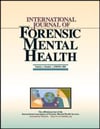In a sample of adolescent boys in a Dutch secure residential treatment center, the effects of perceived injustice on aggression appeared to be mediated by angry feelings. In addition, this relationship was mediated by Abandonment and Entitlement schemas. This is the bottom line of a recently published article in The International Journal of Forensic Mental Health. Below is a summary of the research and findings as well as a translation of this research into practice.

Featured Article | International Journal of Forensic Mental Health | 2021, Vol. 20, No. 2, 133-149
The Influence of Early Maladaptive Schemas on the Causal Links between Perceived Injustice, Negative Affect, and Aggression
Authors
Marjolein F. Van Wijk-Herbrink, VIGO Group; Maastricht University
Jill Lobbestael, Maastricht University
David P. Bernstein, VIGO Group; Maastricht University
Nick J. Broers, Maastricht University
Jeffrey Roelofs, Maastricht University
Arnoud Arntz, University of Amsterdam
Abstract
This study adds to the understanding of why some adolescent boys react to unfair situations with anger and aggression, whereas others do not. We used an experimental design to test whether early maladaptive schemas influence the causal links between perceived injustice, negative affect, and aggression. Thirty-seven adolescent boys (13–18 years old; participation rate 67%) with severe behavior problems were randomly assigned to either the experimental condition, where a feeling of unfairness was induced, or to the control condition. Results showed that the effects of perceived injustice on aggression were mediated by angry feelings, and that this mechanism was conditional on levels of Abandonment and Entitlement schemas. These results suggest that even vulnerable schemas may underlie aggression, and that aggression treatment may benefit from a focus on underlying maladaptive schemas.
Keywords
Aggression, anger, maladaptive schemas, perceived injustice, adolescents
Summary of the Research
“…Berkowitz’ (1990, 2012) theory of anger and aggression…states that aversive situations produce negative affect (e.g., anger), increasing the likelihood of aggressive behavior. Also, it holds that certain attributions or beliefs about the aversive situation may influence the occurrence of anger and aggression…Illegitimacy or unfairness is the most frequently reported trigger for anger…and researchers have demonstrated the relationship between perceived injustice and anger or negative affect…Because negative affect, especially emotional vulnerability, may be underreported by patients with antisocial or disruptive behaviors, it is recommended to measure these feelings on both an implicit and explicit level…The appraisal of a situation as unfair and subsequent occurrence of anger or other negative affect may be influenced by the presence of deeply entrenched, dysfunctional beliefs or maladaptive schemas…” (p.133-134).
“The present study investigated whether specific schemas influence the occurrence of anger or vulnerable feelings (measured both explicitly and implicitly) in situations perceived as unfair, and whether such feelings subsequently lead to aggression. If this is the case, then this would imply that it is important to not only treat anger and aggression, but also to pay attention to underlying schemas and adverse child experiences that led to the development of such schemas. Most treatments for aggression so far, however, do not address these issues but focus only on the aggression itself and on dysfunctional cognitions sustaining aggression. We used an experimental design with adolescent boys with externalizing behavior problems. Feelings of unfairness were induced through a vivid recollection of a recent situation of perceived injustice. In our measure of aggression, we distinguished between unprovoked aggression…and provoked aggression (i.e., further provocation through sound blasts)…” (p.133-134).
“We hypothesized that our manipulation would increase anger, and that this effect would be moderated by schemas Abandonment, Mistrust, Entitlement, and Insufficient Self-control…We also hypothesized that our manipulation would increase (implicit and explicit) vulnerable feelings related to abandonment and abuse…and that this effect would be moderated by schemas of Abandonment and Mistrust…[Lastly] We hypothesized that the largest effects of our unfairness induction would be found on unprovoked aggression…and not on provoked aggression…our findings suggest that specific schemas play a critical role in the occurrence of anger and aggression when encountering perceived injustice. Specifically, participants with higher levels of Abandonment and Entitlement were likely to display more anger and aggression than participants with lower levels of such schemas. The effect was most profound for the schema Abandonment, a schema that is usually associated with internalizing emotions such as loss and sadness…” (p.134-144).
Translating Research into Practice
“The present findings have potentially important implications for the clinical management of anger and aggression. For example, studies show that antecedent-focused emotion regulation strategies are the most effective means of reducing anger and aggression, following provocations…Reappraising situations in more benign terms can reduce anger before it escalates and triggers aggressive coping behavior. Our findings suggest that early maladaptive schemas…may interfere with reappraisals of provocative situations…[and] increase rumination…that reduces self-control and increases the risk of aggressive behavior…” (p.146).
“…In clinical practice, schema activation is easily overlooked. Interventions for aggression, such as Aggression Regulation Therapy, usually only target (coping) behaviors and cognitions that are usually associated with externalizing disorders, not schemas that are usually associated with internalizing behaviors (e.g., Abandonment). The findings of this study emphasize the need for interventions targeting early maladaptive schemas, such as Schema Therapy…when treating aggression in adolescent boys with severe behavior problems…” (p.146).
Other Interesting Tidbits for Researchers and Clinicians
“A noteworthy result of our study was that the schemas Abandonment and Entitlement not only led to higher increases in state anger in the experimental condition, but that they also affected state anger in the control condition…In contrast to feelings of anger, state abandonment and abuse-related feelings did not decrease after the neutral interview, regardless of the level of the schema Abandonment. Whereas anger can easily be appeased by strangers, abandonment presupposes a relationship with a degree of closeness or intimacy…The effects of perceived injustice – in combination with high levels of Abandonment and Entitlement – on anger and subsequent aggression disappeared after all participants were provoked with sound blasts. Thus, the sound blasts provocation eliminated the effects of our experimental manipulation…” (p.144-145).
“Schema Therapy is an integrative psychotherapy that has been shown effective for adult patients with personality disorders…including forensic patients with severe antisocial behaviors…The literature on Schema Therapy in adolescents is still scarce, but the present study is in line with the preliminary finding that Schema Therapy may ameliorate behavior problems in adolescents with disruptive behavior disorders…” (p.146).
Join the Discussion
As always, please join the discussion below if you have thoughts or comments to add!






















